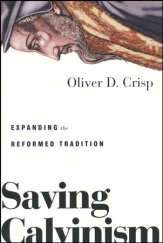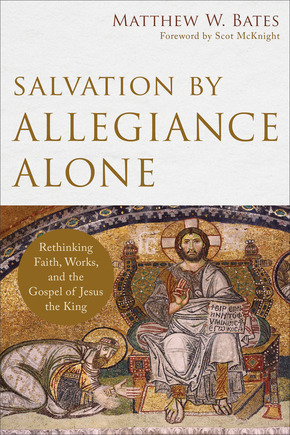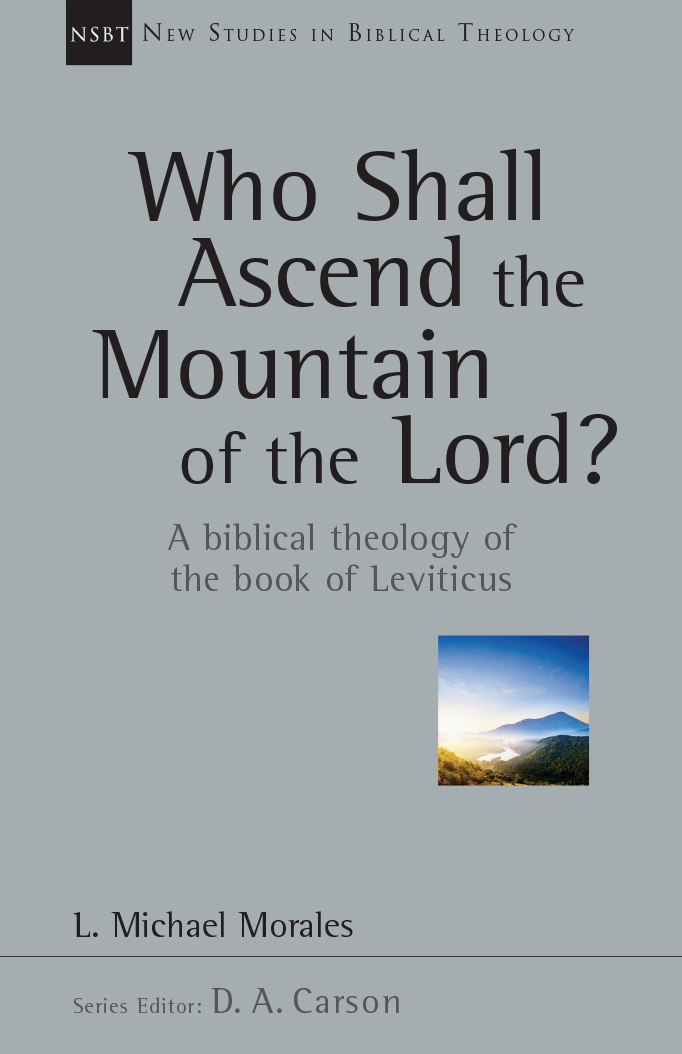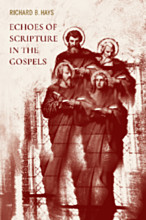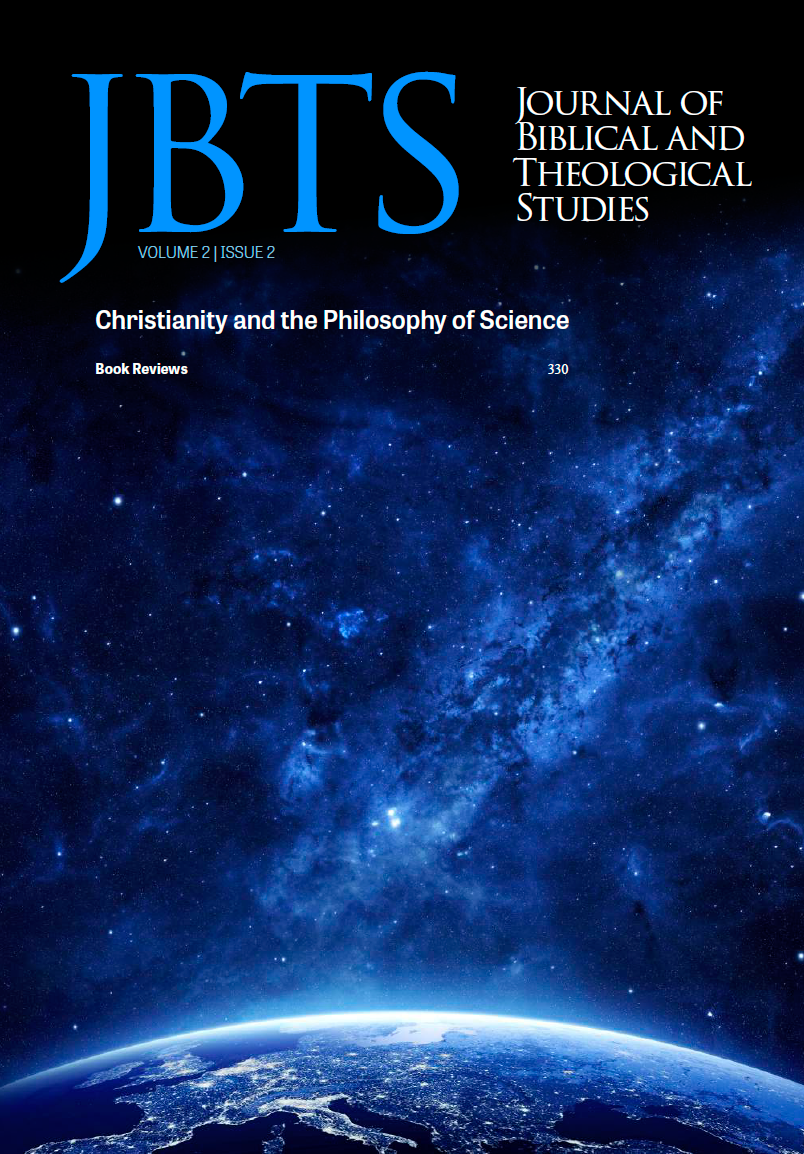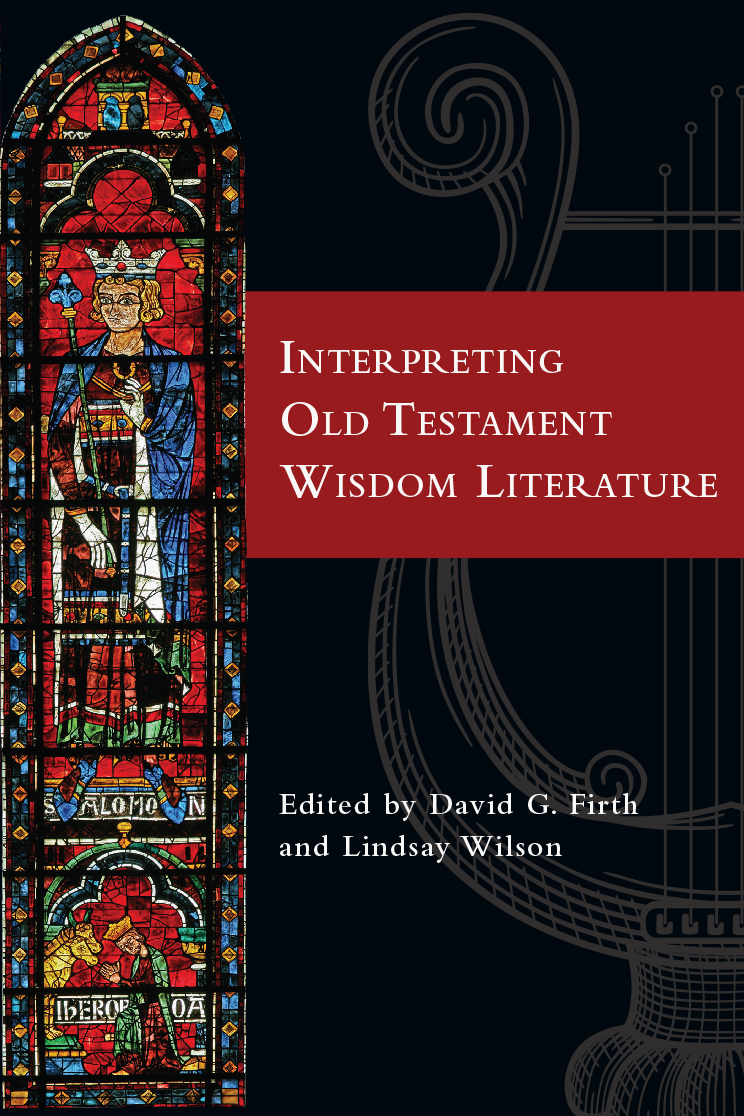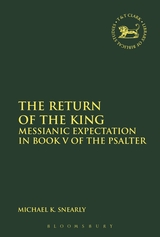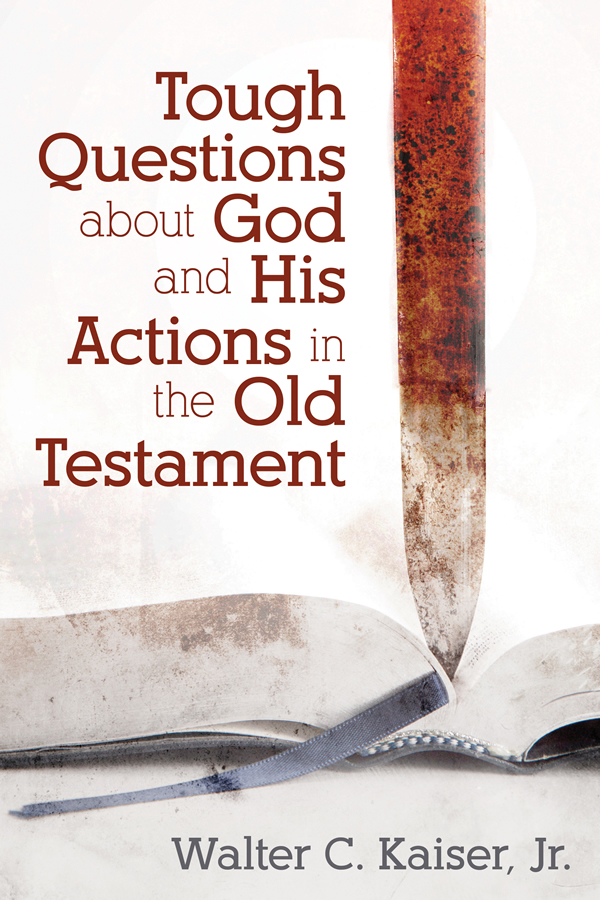Oliver D. Crisp, Saving Calvinism: Expanding the Reformed Tradition. Downers Grove, IL: IVP Academic, 2016. pp. 167. $18.00, paperback. As someone who has written a couple of books critiquing Calvinism, I must say I was intrigued, and somewhat amused by the title of this book. Why, I wondered, would a leading Reformed theologian think Calvinism needed to be saved, and from what? The answer, it turns out, is that Calvinism may need to be saved from some of its most zealous proponents. These zealous proponents, who have led a remarkable resurgence of Calvinism during the past few decades, have claimed the mantle of the great Reformer for those who subscribe to the clearly defined set of doctrines famously summarized in the Tulip acronym. This is particularly true of those devotees of Calvin that have been dubbed “the young, the restless, the Reformed,” who, enthusiastic though they are, may suffer from “a kind of theological amnesia” (p. 12). Reflecting on the future of the movement, Crisp even goes so far as to say: “In one respect, if the name Calvinism were dropped tomorrow, and no one spoke of Calvinism again, it would be a blessing. Calvin would be turning in his…
Book Reviews
Bartholomew, Craig G. Contours of the Kuyperian Tradition: A Systematic Introduction. Downers Grove, Ill.: IVP Academic, 2017, pp. 363, $40.00, hardback. In the United States, theologically conservative Christianity seems to stand at the edge of a major shift in political theology. The so-called Judeo-Christian consensus for public theology and ethics have eroded. Around the world, the epistemological foundations that have generally been assumed are frequently challenged. Especially in the United States, the culture is rebalancing toward a totalizing view of economics and politics. Since the vast majority of the Christian tradition of writing on cultural engagement occurred in situations of relative dominance of Christian consensus, there are too few examples of effective engagement in a pluralistic context. Among the limited list of positive examples Lesslie Newbigin, Francis Schaeffer, and Abraham Kuyper are near the top. Unfortunately, until recently, only a limited amount of material in the early Kuyperian tradition has been available in English. That is quickly changing, which makes Craig Bartholomew’s recent book, Contours of the Kuyperian Tradition, a timely and valuable volume. Bartholomew sets the table for the book in his introduction, where he outlines the basic Kuyperian program, which entails seeking the welfare of the city. The…
Bates, Matthew W. Salvation by Allegiance Alone. Grand Rapids: Baker Academic, 2017, 234 pages, $24.99, paper. The author of what the back cover proclaims is a “bold, provocative book” has the Ph.D. from the University of Notre Dame and is an assistant professor of theology at Quincy University, a Catholic institution. Bates is a Protestant who studied at Whitworth University and Regent College, Vancouver. He claims a broad denominational background and believes that this enables him to approach the issues in a fair way, going so far as to hope his work contributes to greater rapprochement between Catholics and Protestants. Scot McKnight writes the Forward to the book. Of course, what has traditionally separated Protestants and Catholics on the issue of “salvation by grace through faith” centers on what happens when someone believes or has faith. Simplistically, is that one “declared” righteous, or “made” righteous? What role do “works” have in this transaction—for one side or the other? But especially crucial for Bates’ concern, what is the nature of the “faith” that saves? And that question brings up Bates’ provocative assertion: “… ‘faith’ and ‘belief,’ insofar as they serve as overarching terms to describe what brings about eternal salvation, should…
Morales, L. Michael. Who Shall Ascend the Mountain of the Lord? A Biblical Theology of the Book of Leviticus, New Studies in Biblical Theology 37 (Downers Grove, IL: IVP Academic 2015). $27.00. Dr. L. Michael Morales is professor of biblical studies at Greenville Presbyterian Theological Seminary and a teaching elder in the PCA. He is also the author of a new book in the NSBT series edited by D.A. Carson, Who Shall Ascend the Mountain of the Lord? A Biblical Theology of the Book of Leviticus. The book of Leviticus is often referred to as the place where Bible reading plans go to die. That is because the content of the book is so unfamiliar that most Bible readers are stumped when they begin working through its content. Even biblical scholars find themselves in unfamiliar territory, looking instead to the NT interpretation of the Levitical legislation and sacrifices rather than working through the material in its original context. But Morales intends to bring clarity to the confusion by offering a new biblical theology of the book of Leviticus. His main task is to answer the question posed in Psalm 24:3: “Who may ascend the mountain of YHWH?” Morales calls this question the “gate…
Hays, Richard B. Echoes of Scripture in the Gospels. Waco: Baylor University Press, 2016, xix + 504 pp., $49.95. Richard Hays, George Washington Ivey Professor of New Testament at Duke Divinity School, is well known to scholars and students alike as one of the world’s foremost experts on the use of the Old Testament in the New (as well as on Paul, NT ethics, and hermeneutics more generally). This book was completed after Hays received a diagnosis of pancreatic cancer, with special research assistance and with Baylor’s fast-tracking publication of the manuscript. Mercifully, as of this writing, that cancer is still in remission. Echoes of Scripture in the Gospels mirrors the name of the author’s classic Echoes of Scripture in Paul, published in 1989. Then Hays was eager to go beyond the obvious quotations and even allusions to the OT in Paul’s letters to the significant clauses, phrases, and even key words that seemed likely to show Paul’s deliberate use of OT phraseology. In this work on the Gospels, Hays still identifies some echoes not regularly discussed elsewhere but is keener to survey the major quotations and allusions as well, especially when attention to their larger OT contexts discloses additional…
Book Reviews Idealism and Christian Theology edited by Joshua R. Farris and S. Mark Hamilton; Idealism and Christian Philosophy edited by Steven Cowan and James Spiegel (Reviewed by C. Layne Hancock) The Myth of the Moral Brain: The Limits of Moral Enchantment by Harris Wiseman (Reviewed by Jeffrey B. Riley) Making Sense of God: An Invitation to the Skeptical by Tim Keller (Reviewed by Brian Williams) The Church: Presbyterian Perspectives by Donald K. McKim (Reviewed by David Farbishel) How to Preach and Teach the Old Testament for All Its Worth by Christopher J. H. Wright (Reviewed by Pete Charpentier) Modern Art and the Life of a Culture: The Religious Impulses of Modernism by Jonathan A. Anderson (Reviewed by Richard H. Stark, III) Reading Kierkegaard I: Fear and Trembling by Paul Martens (Reviewed by Andrew Zack Lewis) Joel (The International Theological Commentary) by Christopher R. Seitz (Reviewed by Jonathan Atkinson) The Biblical Greek Companion for Bible Software Users by Mark L. Strauss (Reviewed by Brett A. Berger) A Biblical-Theological Introduction to the Old Testament: The Gospel Promised by Miles V. Van Pelt (Reviewed by Casey K. Croy) Designed to Lead: The Church and Leadership Development by Eric Geiger and Kevin Peck…
Firth, David and Wilson, Lindsay. Interpreting Old Testament Wisdom Literature. IVP: Downers Grove, Illinois: IVP Academic, 2017, pp. 232, $30, Paperback. David G. Firth is Old Testament Tutor and Academic Dean at Trinity College, Bristol. He is the author of 1 & 2 Samuel (AOTC), The Message of Esther and The Message of Joshua (IVP, 2009, 2010, 2015), and co-editor of Interpreting the Psalms, Interpreting Isaiah, Interpreting Deuteronomy, Words and the Word and Presence, Power, and Promise (all Apollos, 2009, 2009, 2012, 2008, 2011). Lindsay Wilson is Academic Dean and Senior lecturer in Old Testament at Ridley College, Melbourne, Australia. He is the author of Job (THOTC, Eerdmans, 2015). Interpreting Old Testament Wisdom Literature presents a collection of essays on wisdom books and wisdom ideas. The essays interact with Old Testament wisdom literature and offer up-to-date evaluations on the current issues. Craig Bartholomew provides an introduction with a survey of the landscape of Old Testament wisdom literature. Section two covers the issues within the wisdom books of Proverbs, Job, and Ecclesiastes. The inclusion of Song of Songs and some Psalms as wisdom texts are considered. Section three subsequently covers major ideas within Old Testament wisdom literature. These essays present a…
Bird, Michael F. An Anomalous Jew: Paul among Jews, Greeks, and Romans. Grand Rapids, MI: Eerdmans, 2016, pp. 322, $28.00, paperback. Contemporary Pauline studies generally heeds the adage that Paul was Jewish, although much argument remains about exactly what this statement means. Such declarations follow Paul himself, who identifies as an Israelite, a descendant of Abraham, and a Benjaminite (Rom 11:1). Michael Bird, Lecturer in Theology at Ridley College, attempts to specify some of the ways that Paul must be viewed within Judaism as well as how Paul became such a controversial figure within first-century Judaism. The introduction maps how others have identified Paul’s relationship to Judaism around the coordinates of “former,” “transformed,” “faithful,” “radical,” and “anomalous” Jew. Bird sees the last qualifier as most apt but notes that much of what was unusual about Paul’s thought did not necessitate the particularly unaccommodating relationship between Paul and Jewish authorities. He understands Paul’s anomaly to be the revelation of Jesus Christ, “which discloses how faith in Christ without Torah was the instrument that brings Jews and Gentiles into reconciliation with God and into the renewal of all things” (p. 28). Other chapters test this hypothesis with regard to particular issues. Chapter…
Snearly, Michael K. The Return of the King: Messianic Expectation in Book V of the Psalter. London: T&T Clark, 2016, pp. 236, $112, hardback. Michael K. Snearly’s revised doctoral dissertation, The Return of the King: Messianic Expectation in Book V of the Psalter, is one of the most recent and substantive contributions to the “canonical” or editorial-critical study of the Psalter. Snearly’s work focuses particularly on Book V (Pss 107–150) and argues the following thesis: “I contend that there is a purposeful arrangement of psalm groups in Book V and that this arrangement should be interpreted as signaling a renewed hope in the royal/Davidic promises” (p. 3). Snearly begins with methodological issues. His thorough interaction with and rebuttal to the method’s skeptics (pp. 10–17) provides a great service to its practitioners, as the method currently faces a “crisis of credibility.” Also noteworthy are the pitfalls he highlights that must be avoided if the method is to remain credible (pp. 18–19). The greatest contribution of these chapters, however, is Snearly’s own development of the method. He provides it with a more solid linguistic foundation by finding in text-linguistics and poetics support for the oft contended notion that the Psalter can be…
Kaiser, Walter C., Tough Questions about God and His Actions in the Old Testament. Grand Rapids, MI: Kregel Publications, 2015, pp.176, $16.99, paperback. Walter C., Kaiser Jr. (PhD, MA Brandeis University, BD Wheaton Graduate School of Theology, AB. Wheaton College) is Coleman M. Mockler Distinguished Professor Emeritus of Old Testament and President Emeritus of Gordon Conwell Theological Seminary. He is author of numerous books and scholarly articles. The title of the book, “Tough Questions about God and His Actions in the Old Testament,” is an accurate summarization of the contents. The book contains ten chapters that deal with ten problems that some people have with the Old Testament. In the introduction, Kaiser provides a brief history of issues regarding the Old Testament. He states that the rise of New Atheism and attacks by Richard Dawkins (The God Delusion) and Christopher Hitchens (God is not Great: How Religion Poisons Everything) demand an apologetic response which is based on an exegetical explanation of Old Testament Theology (pp. 9-16). This book appears to be a summarization and update of similar issues that he discussed in previous publications (Hard Sayings of the Old Testament, 1986 and More Hard Sayings of the Old Testament 1992,…

